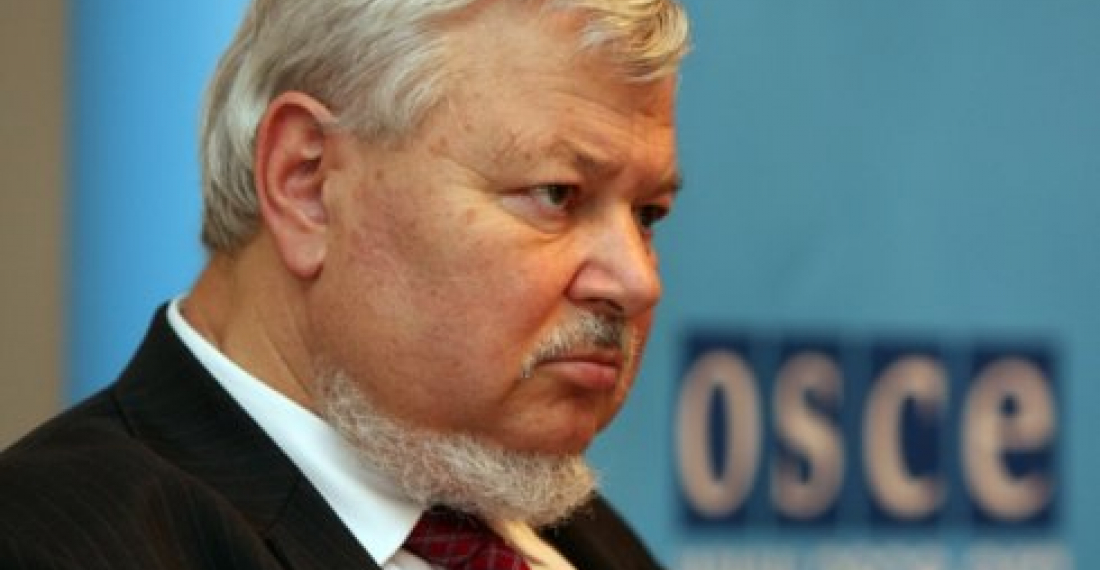A direct intervention by the Special Representative of the OSCE Chairman in Office, and most of his staff was necessary over the last days to secure the orderly repatriation of bodies of dead Azerbaijani soldiers in the Karabakh conflict zone. The soldiers had apparently been killed over the weekend in circumstances disputed by both sides in the Karabakh conflict.
On Wednesday, the OSCE website carried a brief statement by Ambassador Andrzej Kasprzyk, Personal Representative of the OSCE Chairperson-in-Office "on the conflict dealt with by the OSCE Minsk Conference" - a term sometimes used in OSCE documents to describe the Karabakh conflict. The statement said,
"At the request of the sides, a humanitarian operation to retrieve the remains of Azerbaijani servicemen from the heavily mined no man's land took place on Monday, 27 February with my staff fully mobilized in support of this operation. The aim of our presence was to ensure the strict observance of the ceasefire by the sides through security guarantees, and to guarantee that the operation was carried out as agreed between the sides. I would like to stress that my Office was consistently supported by local commanders in the field as well as representatives of the military authorities. With their support, and with the International Committee of the Red Cross present, the operation was concluded successfully in the afternoon."
The intervention led to an end to another spate of speculation with dead bodies between Armenia and Azerbaijan, something that has become an unpleasant but not uncommon occurance in the context of the Karabakh conflict.
source: commonspace.eu with osce.org
photo: Ambassador Andrzej Kasprzyk, Personal Representative of the OSCE Chairperson-in-Office "on the conflict dealt with by the OSCE Minsk Conference". (archive picture)







